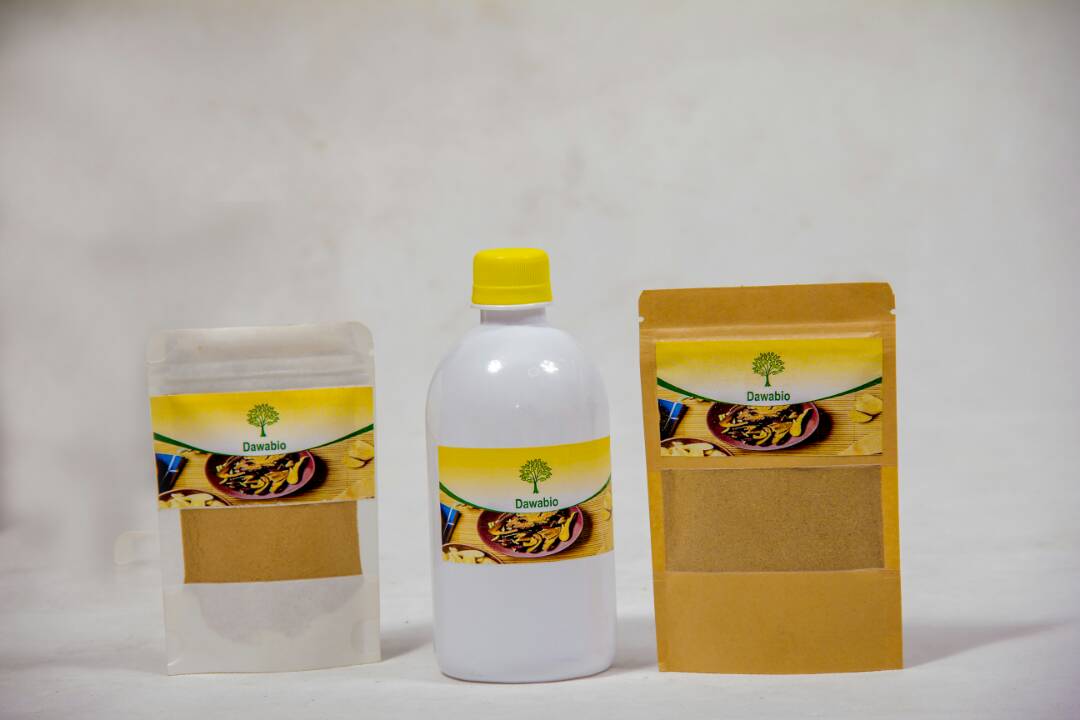PROSTATITIS SYMPTOMS
Prostatitis is a painful inflammation of the prostate. It is a common condition that can affect men of all ages.
Dawasanté experts provide you with a natural treatment based on medicinal plants to cure prostatitis permanently.
HERBAL TREATMENT FOR PROSTATITIS
We have the right and ideal plants for healing prostatitis. They are used to slow the growth of the prostate, by reducing the "fuel" of prostate cells: benign prostatic hypertrophy and prostate cells work with the same factors and use the same "fuel".
These plants are also effective when the volume of the prostate is visible, above 40 m. Obtaining their relaxation and promoting the opening of the funnel of the neck of the bladder and the prostatic urethra. They thus improve the emptying of the bladder. These plants are the first phytotherapeutic approach to reduce the frequency of urination and improve the spray.
To discover our remedy to cure prostatitis, click here!
To contact our experts please call or write to us on the following number, tel / WhatsApp
: +229 51374202
Acute bacterial prostatitis
Acute bacterial prostatitis is caused by bacteria. It is said to be acute because its symptoms appear suddenly and can be severe. It is the least common type of prostatitis, but the easiest to treat.
Chronic bacterial prostatitis
Chronic (long-term) bacterial prostatitis is caused by bacteria and often persists for several months. Its symptoms are usually less severe than those caused by acute bacterial prostatitis and tend to go away and then come back. Chronic bacterial prostatitis can cause urinary symptoms like a burning sensation or pain during urination, but it does not cause fever or chills. It seems to occur more often in older men with benign prostatic hyperplasia.
This type of prostatitis is the most common. This is a chronic condition that is not caused by bacteria and causes pain or discomfort that may go away and return to the pelvis.
Asymptomatic inflammatory prostatitis
The prostatitis Asymptomatic inflammatory causes no symptoms and does not require treatment. Doctors often diagnose it when they do tests to check for other conditions, such as prostate cancer, or to determine the cause of infertility. To ask this
Prostatitis can cause the following signs and symptoms:
At first, prostate cancer does not cause any symptoms. Note that those shown below may be related to another prostate disease, such as benign prostatic hypertrophy.
- Difficulty urinating: difficulty starting to urinate or holding urine, inability to urinate, need to urinate frequently (especially at night), poor urine output, a burning sensation or pain when passing urine 'urinate.
- The blood in the urine or semen.
- Pain or frequent stiffness in the lower back, hips or upper thighs.
- Changes in urinary function: frequent urge, urge to urinate, need to push, urine retention, burning while urinating.
- Genital changes: painful ejaculations, or difficulty getting an erection. Predisposed people
Note that some " at-risk " men will never get prostate cancer. Several risk factors are being studied.
- Age. In North America, prostate cancer mainly affects men over the age of 60. The average age at diagnosis is 70 years, and 80 years at the time of death. Younger, only 0.5% of prostate cancers appear before age 50, and 22% between 55 and 64 ...
- Family history. The risks are higher when the father or a brother has already suffered from this disease, which suggests a genetic predisposition. This hypothesis is reinforced by the discovery that carriers of the BRCA1 and BRCA2 genes have an increased risk of prostate cancer.
- Ethnic origin. Men of African descent are more at risk than Caucasians, who are more at risk than Asians. It is estimated that Indians and Chinese are about 50 times less affected by prostate cancer than Westerners. However, when they migrate to countries where the disease is more common, their risk also increases. This suggests that factors not only related to genes but also to diet exert an influence.
- Obesity: A man who is significantly overweight has a higher risk of having prostate cancer detected at an advanced stage.
- Inflammation or infection of the prostate increases the risk of prostate cancer when it lasts a long time.
- Tall men have a higher risk of prostate cancer.
- Men who have been exposed to pesticides have a slightly higher risk of prostate cancer, especially if they have a history of prostate cancer in their family.
- Exposure to cadmium or rubber derivatives in the workplace also increases the risk of prostate cancer.
The prostatitis is sometimes the consequence of a sexual infection ( sexually transmitted disease ). But very often, no triggering factor is found.
In the elderly, prostatitis is frequently the consequence of a urinary infection, itself secondary to an enlarged prostate which promotes urinary stasis. We then speak of adenomitis
- presence of blood in the urine (hematuria) or semen
- burning sensation or pain during urination
- difficult or painful ejaculation
- urethral discharge
- pain or discomfort in the genitals, groin, lower abdomen, or lower back
- pain or feeling of pressure in the rectum
- need to urinate often (frequent urination)
- very urgent need to urinate (urgent urination)
- reduced urine stream
- difficulty urinating
- fever, chills, and muscle pain
- recurrent urinary tract infections
- sexual problems and loss of libido
.
More precisely:
- Fever over 38.5, chills, severe fatigue ;
- The patient complains of burning while urinating, of having difficulty urinating ( dysuria ), of urinating too often (pollakiuria);
- Sometimes there is a purulent discharge from the urinary meatus;
- Presence of blood in urine or semen;
- The urine may be cloudy and smelly.
Acute prostatitis can present with flu-like signs :
- Diffuse muscle pain, joint pain …;
- Rarely, a sensation of a foreign body in the anus is associated.
Still talking about this disease chronic prostatitis is characterized by chronic perineal pain, sometimes in the anal area. Voiding burns can evolve for several years.
Most often, prostate cancer does not have any symptoms; it is said to be "silent". It will be discovered by chance, following a blood test or during a routine prostate exam. In this case, the doctor will have performed a digital rectal examination, noted induration, and he will have sounded the alarm. This hardening is the most frequent clinical sign.
Similar symptoms when the urethra is compressed
Symptoms start to appear when the tumor grows and puts pressure on the urethra or when it is advanced. The symptoms are the same as for benign prostatic hypertrophy (BPH), because as we age the prostate increases in size and compresses the urethra. Prostatitis can also cause symptoms similar to prostate cancer. On the other hand, as mentioned earlier, the majority of patients with prostate cancer will have no clinical symptoms.
After the age of 40, it is important that people make sure not to confuse BPH, prostatitis and prostate cancer. The examination by a doctor therefore becomes more than important to be clear about it.
BPH or large prostate
The most common signs and symptoms
In the early stages of BPH, there are no signs and symptoms. These appear when the enlarged prostate puts pressure on the urethra and bladder. This can reduce the diameter of the urethra (compress it) or irritate the bladder, which can cause changes in urinary habits and difficulty passing urine. In some patients, symptoms may appear with minimal enlargement of the prostate.
BPH can cause the following symptoms:
- A need to urinate often day and night (frequent urination)
- An urgent need to urinate (urgent urination)
- Difficulty starting or stopping urinating
- A weak or slow urine stream
- A stream of urine that stops
- A feeling of not emptying your bladder
- Difficulty controlling your bladder (urine leakage)
- Pain or burning sensation when urinating
- Difficult or painful ejaculation
- Presence of blood in urine or semen (rare)
Prostatitis or inflammation of the prostate
The most common signs and symptoms
Prostatitis can cause a wide range of symptoms that vary from one man to another. They can be similar to those caused by benign prostatic hyperplasia (BPH) and prostate cancer. On the other hand, it is distinguished by the presence of pain in the pelvic region and so acute, by high fever and chills.
Prostatitis can be caused by an acute urinary tract infection (bacterial prostatitis) or by chronic inflammation / chronic tenderness.
Prostatitis can cause the following symptoms:
- A need to urinate often day and night (frequent urination)
- An urgent need to urinate (urgent urination)
- Difficulty starting or stopping urinating
- A weak or slow urine stream
- A stream of urine that stops
- A feeling of not emptying your bladder
- Pain or burning sensation when urinating
- Pain in the pelvis area (genitals, groin, lower abdomen or lower back)
- Difficult or painful ejaculation
- Fever and chills if the prostatitis is acute
- Recurrent urinary tract infections
- Presence of blood in urine or semen (rare)
BPH and prostatitis do not equate to prostate cancer. They are among the most common diseases related to the prostate.
Localized cancer
Signs and symptoms of localized cancer
The most common signs and symptoms
It is common for prostate cancer in its very early stages to not cause any symptoms due to its generally slow development. Symptoms can appear if the tumor grows and compresses your urethra - causing changes in your urinary habits or other problems - or if your cancer is advanced. The tumor does not usually cause pain in the prostate itself.
As mentioned above, it should be remembered that all of these symptoms are usually caused by benign enlargement of the prostate that occurs with age and not by prostate cancer. They can also be caused by other problems related to the urinary tract, including bacterial or infectious prostatitis, among others.
Cancer can cause the following symptoms (most often there are no symptoms ):
- A need to urinate often day and night (frequent urination)
- An urgent need to urinate (urgent urination)
- Difficulty starting or stopping urinating
- A weak or slow urine stream
- A stream of urine that stops
- A feeling of not emptying your bladder
- Difficulty controlling your bladder (urine leakage)
- Pain or burning sensation when urinating
- Difficult or painful ejaculation
- Presence of blood in urine or semen (rare)
Signs and symptoms of advanced cancer
Signs and symptoms when it spreads outside the prostate
Cancer that started in the prostate then spreads to the pelvic nodes (these are not the same nodes as those in the groin, which are noticeable: the pelvic nodes are found deep in the belly, near the prostate; do not see them and we do not feel them). This is called lymph node metastasis. These lymph node metastases do not cause pain, but can occasionally cause edema (swelling) of the feet and ankles (see why below).
In the even more advanced stage of the disease, cancer cells have usually migrated to the bones, especially those of the pelvis and spine (these are bone metastases).
If the metastases are large enough, then the following symptoms may appear:
- Pain in the lower back or hips
- Numbness or paralysis of the lower extremities (in the spine, metastases can compress the spinal cord)
- Edema (swelling) of the feet and ankles (lymph node metastases can cause poor lymphatic drainage in the lower limbs)
- Weight loss and impairment of general condition (we do not feel well)
- Constant fatigue and pallor (bone metastases can cause anemia)
To contact our experts please call or write to us on the following number, tel / WhatsApp
: +229 51374202


